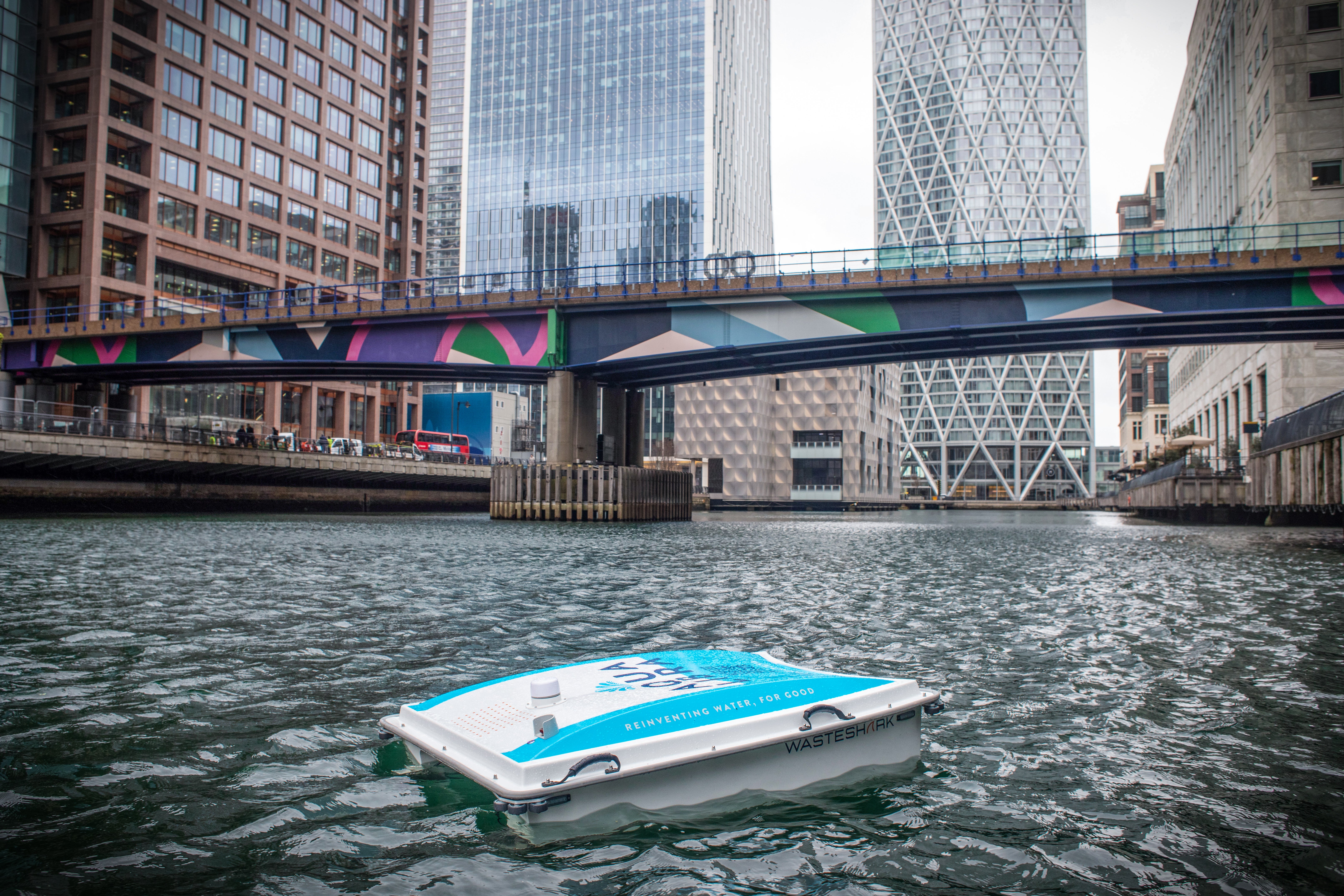Robot shark deployed in London in a bid to reduce water pollution in the area
Ahead of Global Recycling Day on March 18, the plastic-eating robot called ‘WasteShark’ was released in Canary Wharf to gather plastic pollutants

The WasteShark can collect up to 500kg of plastic waste, the equivalent of 22,700 plastic bottles, a day.
It will also gather microplastics and other pollutants as it makes its way through 5km of waterway before needing a recharge.
Once the plastic is collected, the aim is to recycle it for further use.
The machine is London’s first marine robot designed to remove floating waste in the capital, and it can also collect data on water quality as it swims.
This WasteShark was created by Britvic-owned infused sparkling water brand Aqua Libra, whose spokesperson, Steve Potts, said: “Ensuring packaging never becomes waste is a core part of our vision.
“We are excited to be bringing the brilliantly innovative technology to London in partnership with the team at Canary Wharf Group to help tackle plastic pollution in this revolutionary way.”
Canary Wharf is one of London’s busiest districts, with 120,000 people working, visiting or shopping in the area daily.
But the Canary Wharf Group claims that in 2019 alone, 3,576,293 million pieces of single-use plastic were eliminated or recycled there.
Currently, only 14 per cent of English rivers meet good ecological status, with pollution from agriculture, sewage, roads, and single-use plastics.
And it is estimated that eight million tonnes of plastic enter our oceans every year, much of it coming from cities through rivers.
The launch of the marine robot is the brand’s next step on its mission to tackle the issue of plastic waste in London, which will hopefully encourage consumers to make small changes in their everyday lives to recycle more.
Sophie Goddard, director of sustainability, Canary Wharf Group, added: “We aim to transform urban spaces into extraordinary environments which work for nature as well as people.
“As part of this we are so pleased to be launching the WasteShark in partnership with Aqua Libra.
“This innovative marine technology will help us to tackle waste and maintain the environment.”
Join our commenting forum
Join thought-provoking conversations, follow other Independent readers and see their replies
Comments


Bookmark popover
Removed from bookmarks